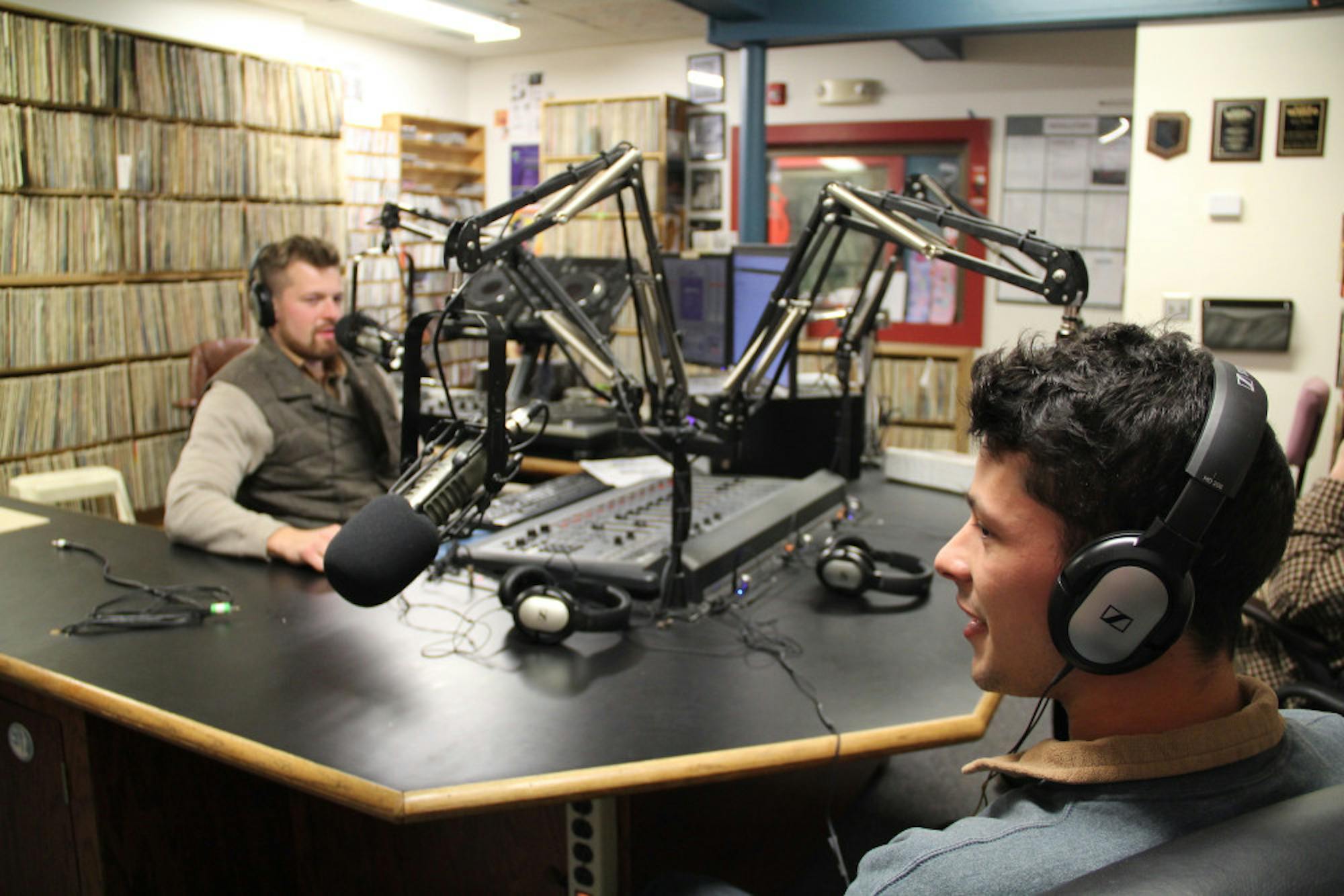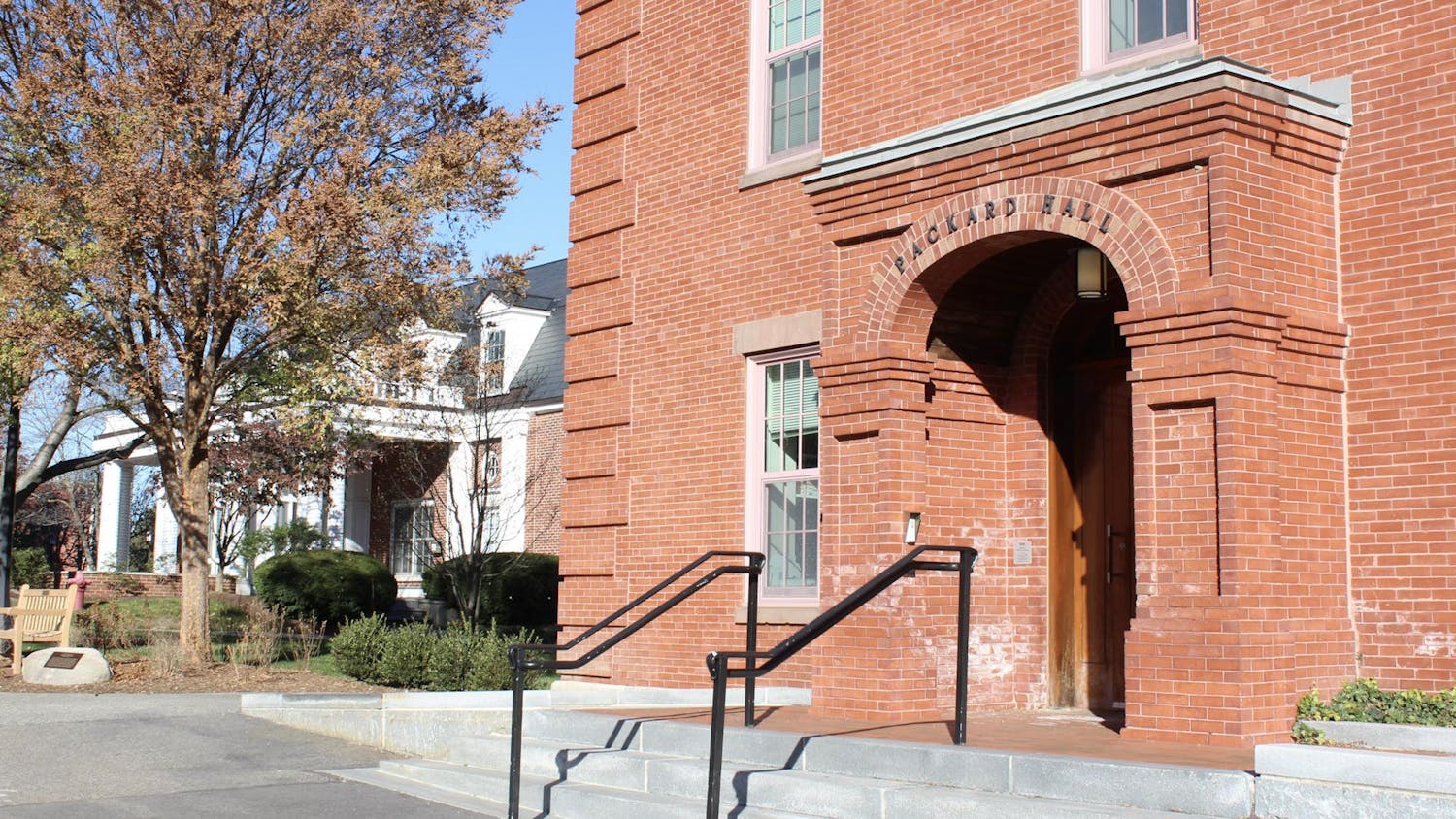The Office for Campus Life gave WMFO, Tufts' freeform radio station, permission to welcome DJs back into the studio as part of thebroader easing of university restrictions announced on Feb. 18.
The station is subject to rules outlined by the Office for Campus Life that apply to all student organizations and their spaces, but this change means WMFO DJs can once again have in-person shows. WMFO has had a stop-and-go year, shutting its doors in March, then reopening to student DJs in September only to close again in November. DJs that are back in the studio now are there for the first time since November.
Rachel Herman, WMFO program director, wrote in an email to the Daily that remote programming has been in place since May 2020. Even when DJs were allowed back into the studio in September, there was a remote broadcasting option. However, Herman, a senior, said there are great benefits to in-person DJing.
“In-person shows are more accessible to many DJs,” Herman said. “There is a bit of a learning curve for the software and procedures required to do a show from home, and many people may not have the time, knowledge, or equipment to participate in that.”
While student DJs were permitted to return to the station starting Feb. 22, only one person is allowed in the studio at a time, and new cleaning procedures have been established.
Herman acknowledged that co-hosting shows and inviting friends on air were sorely missed elements of WMFO. Additionally, she said that the radio station has had more difficulty recruiting and training DJs in the past year.
However, returning DJs are excited to get back into the studio. Diego Griese, a DJ at WMFO, said remote shows don't compare to being in the station, located in Curtis Hall, in person.
“The studio vibes are immaculate, it's awesome to just be in the studio,” Griese said.
Griese expanded on why he likes to be there physically.
“Some of the more interesting parts of the show are the transitions between one show to the next,” Griese said. “You could talk to the DJ beforehand and, as they're leaving they'd be like, stay tuned to listen … You get to say the fun DJ name on the channel and try to establish that relationship on air.”
Griese added that others share his sentiments.
“Everyone I've talked with back in the fall, when we could go back into the studio, everyone was over the moon about it,” Griese said. “It's a really nice place to just be.”
Though student DJs were able to return to in-person production as of Feb. 22, community member DJs cannot.
"Community member DJs are not allowed on campus and have not been since March 2020 due to University COVID policies, so they have continued with the remote-only option," Herman said.
She added that if students are not comfortable coming into the studio or are not in the on-campus COVID-19 testing system, they can continue to have shows through remote broadcasting.
Herman explained that community DJs make up a big part of WMFO's programming and are instrumental in training new DJs with the studio equipment.
“Not having them on campus right now is certainly going to limit and slow down our in-person training capabilities,” Herman said. “We are very eager to get new DJs into the station to keep up student interest and all the traditions of WMFO."
According to John Wescott, associate director of campus life - programming, WMFO is subject to the same rules for social distancing, cleaning and room capacity as the rest of the university.
In an email to the Daily, Wescott explained that the Office for Campus Life and WMFO have been working closelythroughout the pandemic to follow university regulations and keep the station operating.
“Specifically, I’ve met with the full board to discuss WMFO station operations and assist them in reviewing the Tufts guidelines for capacity of the space, who can and cannot use the station and ordering necessary cleaning supplies,” Wescott said.






